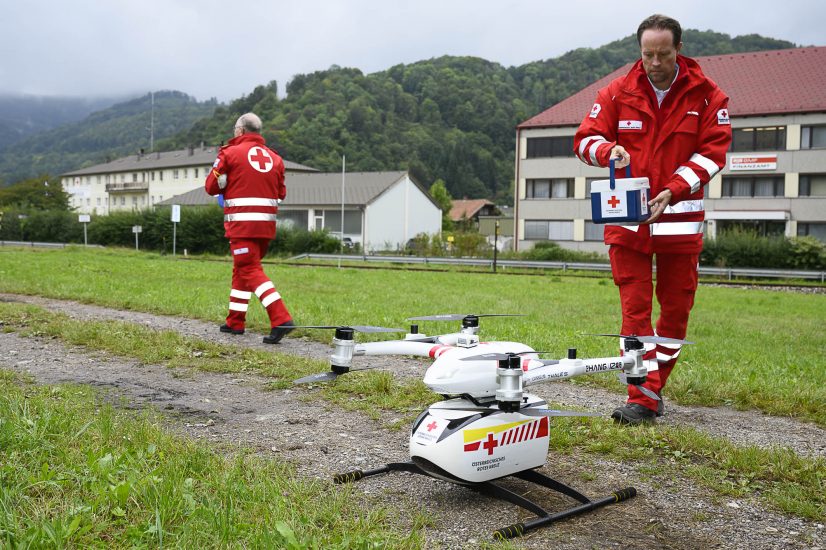The Red Cross has started testing new ways to save time and resources in medical deliveries in Austria.
In a symbolic development, the Red Cross has delivered the first blood bag by drone fully automatically. The flight from the Red Cross district office in Lilienfeld to the nearby state hospital only took a few minutes, but it helped to show how drones can make it easier to help in the future. Thales’ ScaleFlyt solutions provided drone identification with Remote ID, and safe flight management through the SOARIZON by Thales digital service platform.
Currently when a hospital calls for reserves, a car with a driver sets off to deliver the life-saving blood. In Austria, every 90 seconds a person needs a blood supply.
A change in EU rules has brought some initial relief, but the safety requirements are high. Flights like the one in Lilienfeld must be applied for in detail. DI Dr.-Ing Holger Friehmelt, Head of the Aviation Institute at FH JOANNEUM, provided scientific support for the project. “The necessary technologies are available worldwide. Here we were able to demonstrate for the first time with Austrian know-how how one can enable meaningful transport in a real environment in close cooperation with the licensing authority,” he says. “It is important to involve all those involved. In addition to the Red Cross, these were the remote flight monitors, neighbors and not to forget the well-trained young engineers, for whom exciting new fields of activity are opening up.
“As the use of professional drones will inevitably increase, Thales brings its global expertise in the fields of aviation, air traffic management and cyber security to enable safe drone operation. Specifically, we were able to support this project thanks to our ScaleFlyt solutions for identifying drones with remote ID and secure flight management via the digital service platform SOARIZON.” Hannes Boyer, CEO of Thales in Austria.
(Image: ORK/pixelmaker.at)
For more information visit:




